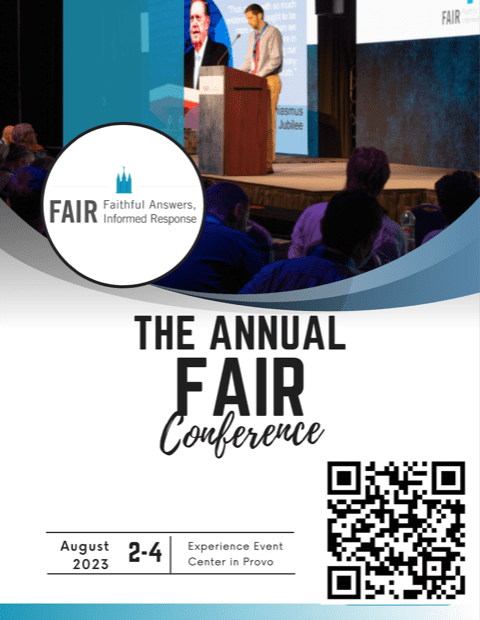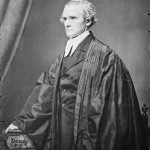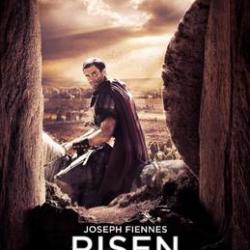
(Wikimedia Commons public domain image)
If you’re in Utah or planning to be in Utah between now and sometime in October, you really should stop by the free, full-scale, outdoor “Tabernacle of the Old Testament” exhibit that is running in various locations here. Currently, in fact, and continuing on through 15 August, the Tabernacle stands on the park area immediately adjacent to my own Orem stake center. Another reproduction of the Tabernacle is in South Jordan through this Wednesday, 2 August, and will then be moving to Bluffdale/Riverton 5-27 August.
You shouldn’t miss it: “Tabernacle of the Old Testament”
And then there’s this, which you also shouldn’t miss:

I want to share a passage from Roger Trigg, Does science undermine faith? (London: Society for the Promotion of Christian Knowledge, 1918), 1-11. As I mentioned in my immediately previous blog entry, Roger Trigg is Emeritus Professor of Philosophy at the University of Warwick and Senior Research Fellow at the Ian Ramsey Centre of the University of Oxford, as well as a Fellow of the International Society for Science and Religion. Here, he is talking roughly about the question of “objectivity” and “neutrality” in science and scholarship, on which I’ve commented from time to time over many years now. And I’m pleased that, for his illustration, he uses the discovery, by Arno Penzias and Robert Woodrow Wilson, of the cosmic microwave background radiation, which helped to establish the Big Bang theory of cosmology and hasten the demise of its rival, the Steady-State theory, and which earned them the Nobel Prize in Physics for 1978:
Some think that the calm rationality of science might provide humans with the way through their quarrels and disagreements. ‘Facts’ and ‘evidence’ will force us all to agree.
Yet what are the scientific facts? One of the developments in the history and philosophy of science over the last 50 years has been the growing realization that data do not come labelled as ‘facts’. Consider Sherlock Holmes looking in a garden for clues about an intruder. He will not find labels on a dropped piece of paper or a footprint saying ‘clue’. What he regards as significant and enlightening will depend on what he regards as relevant to his investigation. It all depends on his theory. Anyone else looking at the same garden would not notice the same things. It is the same in science. One idea about science was that it consisted of the mind passively collecting data like a sponge. Musty old museums, with ranks of cabinets containing curiosities seemingly unrelated by any theme, exemplified this. Sir Karl Popper, the noted philosopher of science, ridiculed the idea as ‘the bucket theory of the mind’. Human beings in general, and scientists in particular, have to be active agents in the world. They cannot pick out what is relevant for their purposes, without a theory tying things together. What once appeared literally as mere background noise to physicists studying the universe became recognized as background radiation from the Big Bang at the beginning of our universe. All that was needed was a theory to demonstrate its significance. The cosmic microwave radiation picked up by instruments in 1963 was first thought to be interference caused by pigeon droppings on the antennae of the equipment. Facts have to be identified as such by scientific theory, which can take note of them and make sense of them. (7-8)
And that, in turn, puts me in mind, yet again, of a statement from Arno Penzias — who was, as mentioned above, the co-discoverer with Robert Woodrow Wilson, his fellow Nobel laureate, of the cosmic background radiation that seems to be a distant and dim but discernible echo of the Big Bang:
“The best data we have (concerning the Big Bang) are exactly what I would have predicted, had I nothing to go on but the five books of Moses, the Psalms, the Bible as a whole.”
“If there are a bunch of fruit trees, one can say that whoever created these fruit trees wanted some apples. In other words, by looking at the order in the world, we can infer purpose and from purpose we begin to get some knowledge of the Creator, the Planner of all this. This is, then, how I look at God. I look at God through the works of God’s hands and from those works imply intentions. From these intentions, I receive an impression of the Almighty.”

It’s not altogether clear to me that this item, found on CNN, came from the Christopher Hitchens Memorial “How Religion Poisons Everything” File™, although there can be no question — given the teachings of the Church of Jesus Christ of Latter-day Saint on the consumption of alcoholic beverages — that it comes from the near proximity of the Hitchens File: “Researchers looked into how just one drink a day can affect blood pressure. Here’s what they found”
Dr. Marco Vinceti, the senior author of the study in question and a professor of epidemiology and public health at the University of Modena and Reggio Emilia in Italy who is also an adjunct professor in the department of epidemiology at Boston University’s School of Public Health said, in a statement, that “Limiting alcohol intake is advised, and avoiding it is even better.”
Dr. Andrew Freeman, director of cardiovascular prevention and wellness at National Jewish Health in Denver, who was not involved with the research, commented: “So, to me, this is yet another study showing there may not be any safe amount of alcohol.” “From a blood pressure perspective,” said study coauthor Dr. Paul Whelton, “I think most people would agree that there’s no level in which alcohol is safe,” Dr. Whelton holds a chair in global public health at Tulane University’s School of Public Health and Tropical Medicine in New Orleans and is the president of the World Hypertension League.
I recommend that you pair the CNN piece with this New York Times article that was published back near the beginning of 2023: “Even a Little Alcohol Can Harm Your Health: Recent research makes it clear that any amount of drinking can be detrimental. Here’s why you may want to cut down on your consumption beyond Dry January.”













